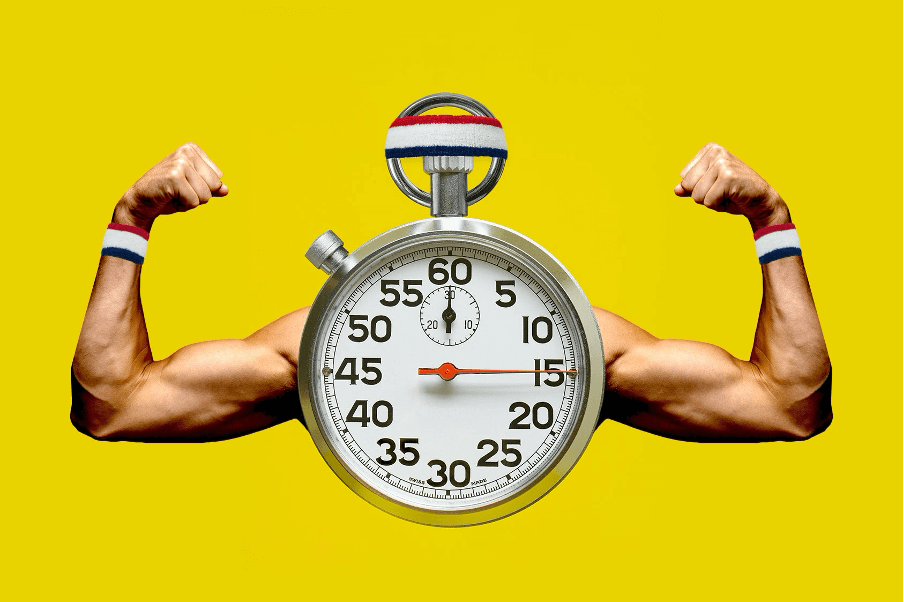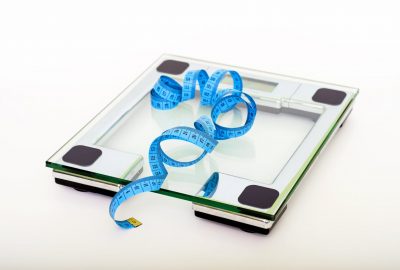So, when Is the Best Time to Workout?
Morning, lunchtime, afternoon or evening, when is the best time to get your exercise in? It’s a hot topic question, with people often sitting firmly on one side of the fence. This article is written to cut through the ‘bro-science,’ examine what the science really says, and let you know once and for all the best time to train.
Better still, we’ll also look at the ideal versus the real, talking about how real-life logistics and personal psychology impact your workout times, before discussing how important workout timing really is to your health and fitness success.

The Best time to Workout – What Does the Science Say?
From a biological perspective, a good number of bodily functions involved in performance display what’s known as a circadian rhythm and tend to peak in the late afternoon. These are things like body temperature, blood pressure, heart rate and even the release of hormones. All of which combined could lead to your muscles producing more force and you having a better performance (Castaingts et al. 2004).
This hypothesis is backed up by Sedliak et al. (2008) who found significant fluctuations in strength and power throughout different times of day, with maximal performances favouring the late afternoon and evening.
There are, however, a of couple interesting studies that complicate things…
One study (Husmer 2013) of strength training interventions found that rate of perceived exertion (RPE) was lower, and total work completed higher, in AM and Lunchtime training groups.
Whilst a separate study (Nicolas et al. 2005) found that whilst muscles had the best contractile ability in the evening, they were also quicker to fatigue.
What Does This Actually Mean? (Practical Recommendations)
Put simply, if you need to perform a small amount of maximal effort work, then sessions scheduled later in the day may be better.
However, if you need to perform repeated bouts of moderate to low intensity work, or you just need to get in a greater total workload, then a morning or lunchtime session may be better.
To provide some practical examples: If you want to test your max squat, do a PM session, whereas if you want to do 4 sets of 10 squats, do an AM or lunchtime session.
The ‘Best’ Time to Workout Versus Real Life
Now that we’ve established what might be classed as ideal, let’s jump back to reality. Most of us don’t get complete control over when we train. Depending on your job, family life and responsibilities you might only be able to train at a specific time of day.
For example, if you’ve got 2 kids at home who want to see you after work before bed, you’re probably not going to be training from 5pm until 7pm.
Or, if you have a job that requires you to work early shifts from 4am til 12pm, you’re not going to be able to train at 7am just because you want to.
The point is, unless you’re a professional athlete, your workouts have to fit around the rest of your life.
Your Psychology Impacts When It’s Best for You to Train
Its also worth considering what kind of person you are, and how you feel about training at specific times of the day.
If you absolutely hate training at 6am then there’s a good chance you won’t end up sticking to your early morning workout plan for very long.
Or, if you work a really tiring job and you’re just mentally (or physically) shattered by 6pm, then trying to train in the evening is probably setting yourself up to fail.
Try to train at a time that you enjoy, or at the very least, a time that you don’t hate.
Can I Switch from Early Morning to Evening or Vice Versa?
You can absolutely switch the time of day you train. The only thing you should be aware of is that for the first few sessions your performance will likely go down a bit. It’s nothing to worry about, your body just needs a bit of time to adjust to the new schedule. Most people find that their workout performances are back to normal in less than two weeks.
Don’t Worry About When You Train
Now, before you go worrying that your training is ruined because you can’t workout at the ideal time, let’s put it in perspective.
The time of day you train really doesn’t make all that much difference.
Even in all the studies we mentioned above, the differences were a few percent. That might be a big deal if you’re aiming for Olympic gold, but for almost everyone else it doesn’t matter.
So do yourself a favour and stop worrying about when you train. Instead, focus your energy on consistently training using a sensible programme, as well as eating healthy food and getting plenty of sleep, because it’s those things that will get you 95% of your success.
References / Further Reading
Castaingts, V, Martin, A, Van Hoecke, J, and Perot, C. (2004) Neuromuscular efficiency of the triceps surae in induced and voluntary contractions: Morning and evening evaluation. Chronobiol Int. 21: 631-643
Heather N. Husmer (2013) The Effects of Time of Day on Resistance Exercise Workout Responses. Masters Thesis Submission, University of Connecticut.
Nicolas, A., Gauthier, A., Bessot, N., Moussay, S., & Davenne, D. (2005). Time-of-day effects on myoelectric and mechanical properties of muscle during maximal and prolonged isokinetic exercise. Chronobiology international, 22(6), 997–1011.
Sedliak, M., Finni, T., Cheng, S., Haikarainen, T., & Häkkinen, K. (2008). Diurnal variation in maximal and submaximal strength, power and neural activation of leg extensors in men: multiple sampling across two consecutive days. International journal of sports medicine, 29(3), 217–224.

